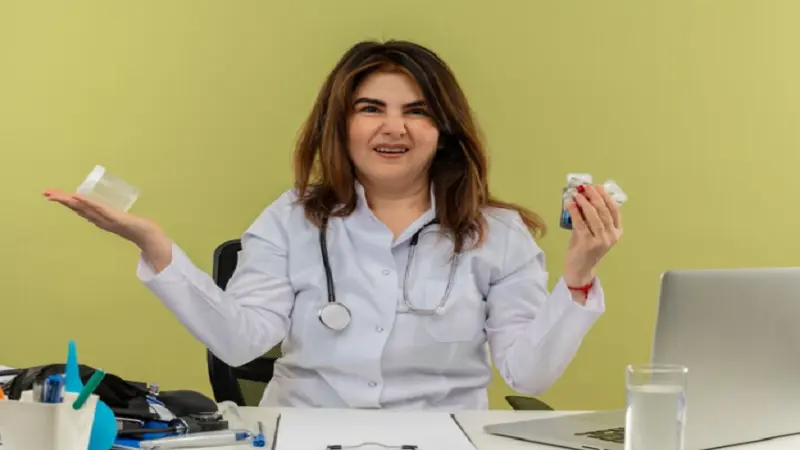Dental and Oral Hygiene Care for Seniors: Why It’s Important and How to Help
As we age, maintaining proper dental and oral hygiene becomes even more essential to our overall health and well-being. For seniors, dental care is often overlooked, yet poor oral hygiene can lead to a host of serious health issues, including gum disease, tooth loss, and even infections that affect other parts of the body. For caregivers, whether they are family members or professionals from a caregiver referral agency like http://abetterwayinhomecare.com/, it’s important to assist seniors in maintaining good oral hygiene as part of their daily care routine. In this article, we’ll explore why dental and oral care is so crucial for seniors and how caregivers can provide the right support.
The Importance of Dental Care for Seniors
Dental and oral hygiene is closely linked to overall health. Seniors are at a higher risk of developing dental issues due to several factors, including age-related changes, medications, and chronic health conditions such as diabetes or heart disease. Gum disease, cavities, dry mouth, and oral infections are common problems that can negatively impact a senior’s quality of life.
For seniors, maintaining healthy teeth and gums is about more than just aesthetics. It helps prevent discomfort, difficulty eating, and more serious complications. Poor oral health has been linked to a higher risk of cardiovascular disease, respiratory infections, and even dementia. Given these risks, caregivers must prioritize dental care in their caregiving duties.
How Caregivers Can Help with Oral Hygiene
Caregivers play a vital role in helping seniors maintain their oral health, especially those who may struggle with mobility, memory loss, or dexterity issues. Ensuring proper dental care is part of daily routines can go a long way in preventing dental problems and promoting overall well-being. Here are some practical ways caregivers can assist seniors with their oral hygiene.
1. Create a Daily Oral Hygiene Routine
Establishing a consistent daily oral care routine is key to preventing dental issues. Caregivers should help seniors brush their teeth at least twice a day using a soft-bristled toothbrush and fluoride toothpaste. Flossing is also important but can be challenging for some seniors. In these cases, caregivers can use floss picks or water flossers as an easier alternative.
Fun Fact: Did you know that using an electric toothbrush can make brushing easier and more effective for seniors with limited hand mobility?
2. Encourage Regular Dental Check-ups
Regular visits to the dentist are just as important for seniors as they are for younger adults. Caregivers should assist with scheduling dental appointments and, if necessary, accompany seniors to their visits. A dentist can detect early signs of gum disease, tooth decay, or other oral health issues that may need to be addressed.
Some seniors may feel anxious about visiting the dentist, especially if it has been a long time since their last visit. As a caregiver, offering reassurance and explaining the importance of check-ups can help ease their fears.
3. Monitor for Changes in Oral Health
Caregivers should be vigilant about any changes in the senior’s oral health. Look for signs such as bleeding gums, bad breath, sores in the mouth, or difficulty chewing. These symptoms could indicate underlying issues like gum disease, infections, or dry mouth caused by medication.
If caregivers notice any of these changes, it’s essential to inform a healthcare provider or dentist as soon as possible. Early intervention can prevent small problems from becoming serious.
4. Assist with Denture Care
Many seniors wear dentures, and proper denture care is crucial for preventing infections and discomfort. Caregivers should ensure that dentures are cleaned daily using a denture cleaner and brush. Remind seniors to remove their dentures at night to allow their gums to rest.
Dentures should also be checked regularly for signs of wear or fit issues, as poorly fitting dentures can cause pain and make it difficult for seniors to eat. If any issues arise, it’s important to visit a dentist to adjust or replace the dentures.
Professional Cleaning Services for a Healthier Home Environment
In addition to personal hygiene, maintaining a clean and healthy living environment is essential for seniors’ well-being. Dust, allergens, and bacteria can exacerbate health problems, including respiratory issues, making a clean home crucial for seniors who may already have weakened immune systems. Professional cleaning services at https://www.fourspc.com/ can be a valuable resource for caregivers who may not have time to clean thoroughly, while also managing their caregiving duties. Professional cleaners ensure that the home remains a safe, clean, and comfortable environment for seniors, reducing stress for both the senior and the caregiver.
Nutritional Considerations for Oral Health
Diet plays a significant role in oral health, especially for seniors. Caregivers should encourage seniors to maintain a balanced diet rich in calcium, vitamins, and minerals that promote healthy teeth and gums. Foods like dairy products, leafy greens, and nuts provide the nutrients necessary for strong teeth. Limiting sugary snacks and beverages can also prevent tooth decay.
For seniors with difficulty chewing, caregivers can prepare softer, nutrient-rich meals that are easier to eat without compromising their oral health. Smoothies, soups, and steamed vegetables are excellent options.
How a Caregiver Referral Agency Can Help
Working with a caregiver referral agency can provide families with access to trained professionals who understand the specific needs of seniors, including oral hygiene care. These agencies carefully vet and match caregivers based on the senior’s health conditions and personal needs. Caregivers provided through a referral agency are often trained in helping with daily oral care tasks, ensuring that seniors receive the best possible support.
By using a referral agency, families can feel confident that their loved ones are in good hands, and caregivers can receive additional resources or training to help manage complex oral health issues.
Did you know that smiling can boost your mood and reduce stress? Maintaining a healthy smile through good oral hygiene not only promotes physical health but also contributes to mental well-being, especially in seniors.
Prioritize Oral Hygiene for a Healthier Life
Dental and oral hygiene care is a crucial aspect of senior care that should never be overlooked. With the help of caregivers, seniors can maintain a healthy smile and reduce the risk of serious health complications. Whether through a family member or a professional caregiver from a caregiver referral agency, ensuring that seniors have a daily oral care routine, attend regular dental check-ups, and eat a nutritious diet is essential for their long-term health. With the right support, seniors can enjoy a higher quality of life and maintain their independence well into their golden years.





